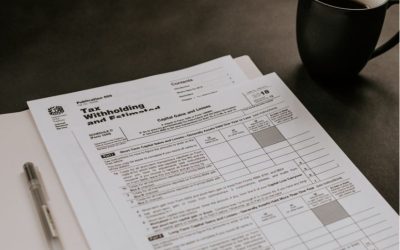Corporate income tax – General principles
Italian corporate entities are subject to a corporate income tax, known as imposta sul reddito sulle società (IRES), and to a regional production tax, known as imposta regionale sulle attività produttive (IRAP). Standard rates are the following:
- 24% for IRES
- 3,9% for IRAP
The IRES taxable basis would be equal to taxpayer’s worldwide income (including that deriving from the lease of real estate assets and capital gains upon disposal of real estate assets), based on the results of the Profit & Loss Statement prepared for the company’s legal purposes, and then adjusted downward or upward in accordance with the rules set forth by the Italian Income Tax Code, and on other tax law provisions.
Non-resident companies are subject to tax only on Italian-source income.
Italian income tax arising from a real estate property
-
Real estate properties not located in Italy
No income tax charge arise.
-
Real estate properties located in Italy
Rental payment received by the company would be subject to IRES and IRAP at the mentioned ordinary rate.
Capital gain arising from the transfer of an Italian real estate property
Capital gains upon disposal of real estate assets would be subject to IRES and IRAP at the mentioned ordinary rate.
Transfer tax arising from the real estate acquisition
Transfer tax arising from the purchase of an Italian real estate, qualified as residential asset, could be summarised as follows:
-
if the seller is an individual (non-VAT taxpayer):
- registration tax is levied at the rate of 9% or 2% if the property can be qualified as main dwelling (first home, prima casa);
- 50 EUR mortgage tax is due;
- 50 EUR cadastral tax is due;
- registration tax could be computed on the cadastral value instead of the transfer price;
- VAT is not applied.
if the seller is a company which did not build or substantially restore the real estate
- the transaction would be exempt for VAT purposes;
- registration tax is levied at the rate of 9% or 2% if the property can be qualified as main dwelling (first home, prima casa);
- 50 EUR mortgage tax is due;
- 50 EUR cadastral tax is due;
- registration tax could be computed on the cadastral value instead of the transfer price.
if the seller is a company which built or substantially restore the real estate in the last five years:
- the transaction would be subject to VAT at the rate of 10% (4% if the property can be qualified as main dwelling (first home, prima casa); 22% if the real estate is a luxury dwelling);
- 200 EUR registration tax is due;
- 200 EUR mortgage tax is due;
- 200 EUR cadastral tax is due.
if the seller is a company which built or substantially restore the real estate not in the last five years:
- the transaction would be exempt for VAT purposes; however, VAT could be applicable upon election of the company at the rate of 10% (4% if the property can be qualified as main dwelling (first home, prima casa); 22% if the real estate is a luxury property);
- if the transaction is subject to VAT, registration tax is levied at the rate of 9% or 2% if the property can be qualified as main dwelling (first home, prima casa); the tax basis could be computed on the cadastral value instead of the transfer price;
- if the transaction is exempt for VAT purposes, 200 EUR registration tax is due;
- 200 EUR mortgage tax is due;
- 200 EUR cadastral tax is due.
Please also note that transactions related to social housing, business assets and lands would be subject to a further tax treatment.
Local Property Tax
Imposta Municipale Unica, IMU
Italian properties are subject to IMU payable by the property owners on annual basis. The tax basis is computed as follows:
- the cadastral value of the property, as resulting from the land registrar on January 1 of the relevant year, is increased by 5%;
- the resulting value is then multiplied by a coefficients based on the property type.
- The standard rate is 0.76 per cent, but the municipality in which the immovable property is located may increase or decrease the rate up to 0.3 per cent. Properties qualified as main dwelling (first home, prima casa) are not subject to IMU.
TASI (invisible services tax)
Italian properties could also be subject to the TASI, on annual basis (several municipalities do not charge it). The taxable basis is the same as for IMU.
The standard tax rate is 0.1 per cent, but the municipality can increase or decrease it. Properties qualified as main dwelling (first home, prima casa) are not subject to TASI.
TARI (garbage tax)
Finally, Italian properties would be subject to the TARI, a special tax on refuse.
The taxable base is computed on the area of properties and open spaces by each municipality. The taxable base would be equal to 80 per cent of the area occupied by immovable property and open spaces according to the cadastral classification.
Limitation to interest deduction
Interest payable under a loan can be deducted up to an amount equal to the amount of interest receivable accrued during the tax year. Any interest payable in excess of the interest receivable may be deducted only up to an amount equal to 30 per cent of the EBITDA of the company.
Regulation of non-operating companies
Specific rules are set out for “non-operating” companies (società di comodo). A company is deemed to be non-operating when the total amount of (i) its revenues, (ii) the increase in the value of its inventory, and (iii) proceeds other than revenues (excluding extraordinary revenue items) reported in the financial statements are lower than the aggregate of:
- 2% of the value of the shares, bonds and other securities held by the company and receivables arising from loans made by the company;
- 6% of the value of the real estate assets; and
- 15% of the value of the other assets (eg intangible assets).
According to Italian Law, a company is non-operating if:
- realises tax losses for five consecutive fiscal years; or
- over a period of five consecutive fiscal years, realises a tax loss in four years and income lower than the minimum taxable income (calculated by applying percentages to certain balance sheet items, as described above) in the remaining year.
If a company is assessed as non-operating and it can successfully demonstrate, where certain criteria are met, that the “non-operating” company regime should not be applicable, it can request a tax ruling from the Italian Tax Authorities.
When a company is deemed to be non-operating, it will be assessed as having a minimum taxable income subject to IRES and IRAP equal to the sum of:
- 1.50% of the value of the shares, bonds, other securities and financial receivables;
- 4.75% of the value of the real estate assets; and
- 12% of the value of the other assets.
If a company is qualified as a non-operating company:
- cannot request refunds of VAT credits nor offset or transfer such credits; and
- is subject to a 38% IRES rate;
- tax losses cannot be carried forward.



